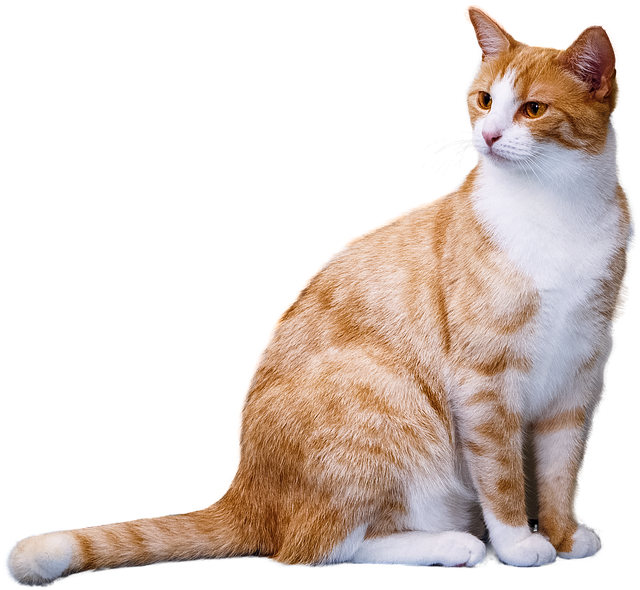The Benefits of Working as a Feline Veterinarian
When researching some of the different careers in veterinary medicine, you may come across feline veterinarians. They’ve become increasingly common in recent decades. Feline veterinarians are still licensed veterinarians who’ve completed a Doctorate of Veterinarian Medicine (DVM) program, but they are distinguished from other veterinarians by their specialty.
What Is a Feline Veterinarian?
A feline veterinarian is a licensed veterinarian who specializes in cats. Like all licensed veterinarians, they offer an array of medical services that focus on the diagnosis, treatment and prevention of diseases and injuries. Feline veterinarians simply live up to their namesake by specializing in medical services for cats.
Most feline veterinarians work in private practices. If an owner’s cat is sick or injured, he or she may visit a private veterinary practice to seek the services of a feline veterinarian. Some of these private veterinary practices accept all small animals, whereas others only accept cats. Regardless, feline veterinarians are veterinary professionals who specialize in cats. They work in practice practices where they treat cats.
Increased Client Loyalty
What are the benefits of working as a feline veterinarian exactly? As a feline veterinarian, you may experience increased client loyalty. Clients are cat owners. And as most owners know, cats can be finicky when taken outside of their homes and into a veterinary practice. Some cats may attempt to scratch and claw out of fear. Feline veterinarians, however, know how to calmly handle cats without causing them undue stress. As such, clients will continue to seek their services. You’ll have an easier time not only attracting clients but also retaining them if you work as a feline veterinarian.
Higher Level of Service
Because they specialize in cats, feline veterinarians tend to offer a higher level of service when compared to traditional veterinarians. Like all types of animals, cats have a specific anatomy. While traditional veterinarians are trained to treat all types of animals, they are generally less knowledgeable regarding feline anatomy. Feline veterinarians are specialized in cats. They know how to spot common diseases from which cats suffer, and they know the best course of treatment for those diseases. This means feline veterinarians typically offer a higher level of service for cats.
Growing Demand
The demand for feline veterinarians is growing. According to the American Veterinary Medical Association (AMVA), over 31 million households in the United States own at least one cat. To put that number into perspective, that accounts for roughly one-quarter of all U.S. households. Regardless of where you live, there are probably cat owners nearby. To help their cats live longer and healthier lives, you can start a career as a feline veterinarian. Many private practices hire feline veterinarians. Alternatively, you can open your private practice from which to work as a feline veterinarian. With a growing demand, feline veterinarians are needed throughout the country.

Board Certification Available
While not a requirement, board certification is available for feline veterinarians. The AVMA recognized Feline Practice as a board-certified specialty. The Feline Practice specialty is regulated by the American Board of Veterinary Practitioners (ABVP). After working as a traditional licensed, as well as meeting the other prerequisites, you can seek to become a Feline Practice specialist. Feline Practice specialists are board-certified feline veterinarians. They’ve satisfied the ABVP’s requirements, resulting in the title of board certification in the Feline Practice specialty.
Some of the requirements for becoming a Feline Practice specialist include the following:
- At least six years of experience working as a veterinarian
- Strong commitment to specializing in cats
- Pass the certification exam.
Professional Advancement
Professional advancement is available when working as a feline veterinarian. As previously mentioned, board certification is an option. You can still work as a feline veterinarian without board certification. Board certification is simply an optional form of professional advancement that gives you the title of being a Feline Practice specialist. With this title, you may secure a higher-paying job. Veterinary practices, for example, may offer you a higher salary if you are board certified.
You can also brand out into other specialties when working as a feline veterinarian. There are dozens of other AVMA-recognized board specialties. Even if you’re certified in the Feline Practice specialty, you can always seek another specialty with which to advance your career.
Improve the Lives of Cats
Perhaps the greatest benefit of working as a feline veterinarian is that it gives you the opportunity to improve the lives of cats. Most domestic — those that live indoors, at least — have an average lifespan of 10 to 15 years. Cats, of course, aren’t immune to adverse medical conditions. They can suffer from diseases like cancer, decline immunodeficiency virus (FIV), heartworms and more. Some of these diseases can shorten a cat’s lifespan, whereas others can cause severe pain and discomfort. As a feline veterinarian, you can tackle these diseases head-on to improve the lives of cats.

